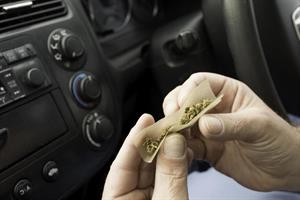 The UK’s leading road safety charity surveyed 2,028 motorists on which substances, if any, they had taken within the 24-hours before driving, with a shocking 1-in-10 of respondents confessing to having driven after taking illegal drugs. This means that, of the 35 million people who possess a full driving licence in the UK, up to 3.5 million motorists may have driven while under the influence of illegal drugs, putting themselves and other road users at risk in the process.
The UK’s leading road safety charity surveyed 2,028 motorists on which substances, if any, they had taken within the 24-hours before driving, with a shocking 1-in-10 of respondents confessing to having driven after taking illegal drugs. This means that, of the 35 million people who possess a full driving licence in the UK, up to 3.5 million motorists may have driven while under the influence of illegal drugs, putting themselves and other road users at risk in the process.
The survey found that cannabis was the most widely used substance of those who confessed to driving while under the influence of drugs, with 1-in-20 (5%) admitting to consuming the drug before driving a vehicle. The next most popular substance was cocaine, followed by ecstasy (MDMA) and speed (amphetamine).
Furthermore, 14% of respondents said that they would be unlikely to stop a friend or family member who was planning on driving after taking illicit drugs.
The findings come in the wake of IAM RoadSmart’s Safety Culture Report, which studies UK motorists’ driving attitudes and behaviours on key issues over time, which discovered that 58% of motorists believe that driving while under the influence of drugs is a bigger problem compared to three years ago.
The number of drug-driving incidents has reached record highs in the UK, with the Department for Transport (DfT) reporting that drug-related collisions and casualties have surged by over 260% in the last decade, with 44% of these offences being committed by previous offenders.
Neil Greig, Director of Policy and Research at IAM RoadSmart said, “Our research offers a sobering insight into how Britain’s drug epidemic is rearing its ugly head on our roads. Illicit drugs can profoundly impair a motorist’s judgement, reaction times and alertness while driving, and some of the effects can last for days after a drug has been taken. As can be seen in the DfT statistics, this is causing havoc on the nation’s roads.”
“But with nearly half of the offences being committed by previous offenders, and casualties increasing year-on-year, it is about time that the government took urgent action to address this issue before more lives are tragically lost.”
IAM RoadSmart has recently called on the government to reform its approach to tackling Britain’s drug driving problem by proposing changes to the prescription process, developing a dedicated rehabilitation course and finally seeing an outcome to its own drug-drive consultation, ‘Protecting the public from repeat drug-driving offenders’, which was completed last summer.
Photo: 10% of drivers surveyed admit drug-driving.